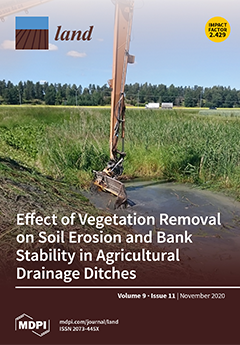Resource information
Development practice over recent years in much of Africa prioritized formalization of land policies deemed to enhance better handling and use of land as an asset for social development. Following this trend, land reform policy in Ghana was based on a pluralistic legal system in which both the customary land tenure system and the statutory system of land ownership and control co-exist by law. The primary research question for this study was the following: What implications emerge when customary land tenure system and the statutory system of land ownership and control co-exist in law? The study discussed the prospects and challenges of land title registration and the meaning of the new organizing concept in land ownership and administration among the people of Dagbon in the northern region of Ghana. The principal aim of the study was to assess the challenges of the implementation of a modern land registration system over a deeply traditional one. A qualitative research methodology was used and included qualitative descriptive analysis. This descriptive-analytical study was carried out to investigate opinions on the implications of the merger and preferred options for redress of any systemic challenges. It employed Focused Group Discussions (FGDs) to supplement in-depth interviews. Interviews were conducted among 40 key participants within formal and informal institutions including officials from both the Land Commission and Town and Country Planning Departments. Purposeful sampling was employed, and an interview guide was developed and used for collecting the data. Data were analyzed using a thematic approach. The results showed that in this structural reform, the ‘allodial title’ holder was much more trusted for tenure security because of the traditional legitimacy of the King as the sole owner and controller of land. The title registration system therefore principally served the secondary purpose as additional security. The findings indicate that in the circumstance where the law was seen as pliable, the policy engendered blurred and confusing effects that deepened the sense of ambiguity and outcomes were sometimes contradictory. We argued that the crossroads presented challenges that were novel and engendered innovative thinking for more appropriate solutions. The study revealed that policy reforms must be tailor-made to the physical, social, cultural and economic settings.


